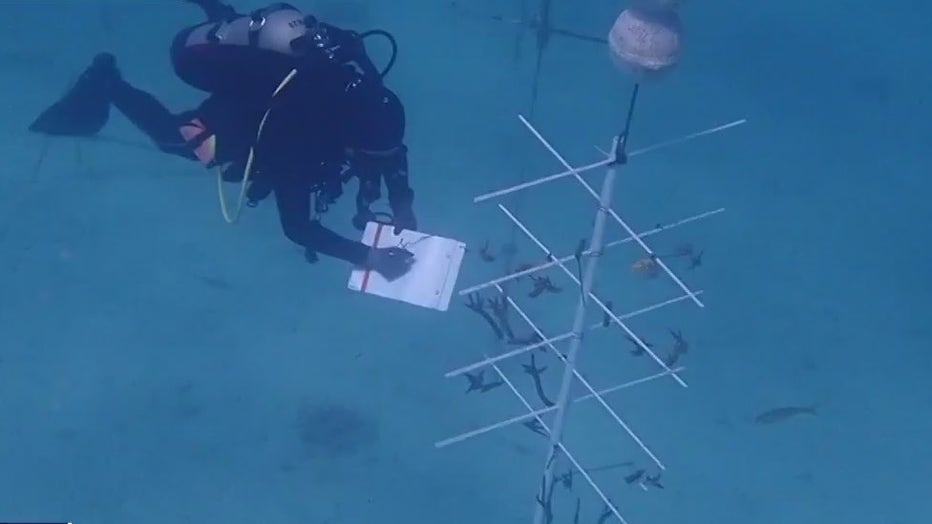7,000 corals returned to underwater nurseries after rescue mission off Florida Keys coast
SARASOTA, Fla. - From July to August, a rescue mission took place off the coast of the Florida Keys.
"It was a devastating summer and one that was emotionally charged," said Dr. Jason Spadaro.
Facing 90-degree-plus water temperatures, scientists evacuated thousands of stressed and dying corals. They worked against the clock and coral bleaching.
Four weeks ago, researchers with Mote Marine Laboratory began the process of returning 7,000 corals to underwater nurseries.
Dr. Jason Spadaro, the Coral Reef Restoration Research Program Manager, said a closer look brought positive findings.
"The silver linings were abundant," he said. "At first glance, you see the devastation, but if you step back and look a little closer, there were all of these hallmarks of resilience among the natural corals, restored corals, and the corals in our nurseries."

Dr. Spadaro said while they lost some corals, a small number left offshore showed signs of resilience.
He said those rescued are now recovering.
"We had thousands of corals come in bleached and dead and dying," Dr. Spadaro said. "Many of them recovered and now look phenomenal. They are actively growing, which is great news. The corals put out into the offshore nurseries look phenomenal," said Dr. Spadaro.
Dr. Spadaro said the coral's genetics and heir recovery show that research is working, but its far from over.
One key aspect of the research is growing coral that is more resistant to bleaching and increasing the genetic diversity of the coral that makes up the reef.
"The results speak for themselves. The resilience is there. All we need to focus on is that and integrate that into our science-based strategy even further and continue the work that we have been doing," said Dr. Spadaro.


